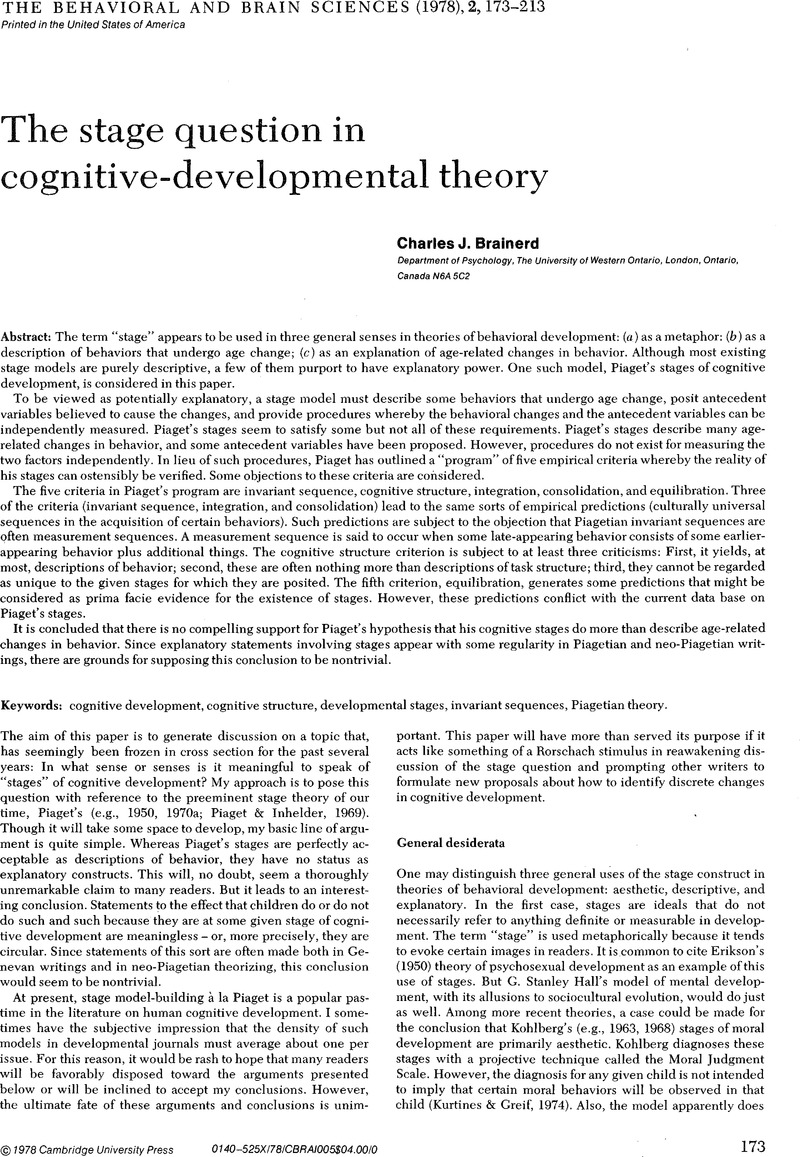No CrossRef data available.
Article contents
Is Piaget a Pied Piper?
Published online by Cambridge University Press: 04 February 2010
Abstract
An abstract is not available for this content so a preview has been provided. Please use the Get access link above for information on how to access this content.

Information
- Type
- Open Peer Commentary
- Information
- Copyright
- Copyright © Cambridge University Press 1978
References
REFERENCES
Brainerd, C. J.Does prior knowledge of the compensation rule increase susceptibility to conservation training? Developmental Psychology. 12:1–5. 1976.CrossRefGoogle Scholar
Brainerd, C. J.Feedback, rule knowledge, and conservation learning. Child Development. 48:404–11. 1977.CrossRefGoogle Scholar
Case, R.Structures and strictures: Some functional limitations on the course of cognitive growth. Cognitive Psychology. 6:544–74. 1974.CrossRefGoogle Scholar
Siegler, R. S.Sequences and synchrony in development.Talk presented at the Psychonomic Society Meeting,November, 1977,Washington, D. C.Google Scholar
Sternberg, R. J.Representation and process in transitive inference.Paper presented at Psychonomic Society Meeting,November, 1977,Washington, D. C.Google Scholar
Trabasso, T. How do children solve class inclusion problems? In: Siegler, R. S. (ed.), Children's Thinking: What Develops? Hillsdale, N. J., Erlbaum, in press.Google Scholar

